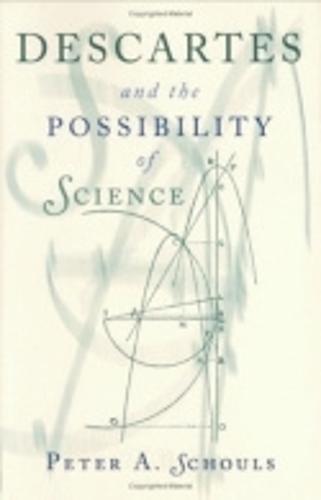Overview
This new book describes the intellectual structure of modern science as a body of knowledge produced by the Cartesian method. For Descartes, science was possible only because of certain features of the very nature of human beings. Peter A. Schouls focuses on two largely neglected aspects of Descartes's position: the intellectual imagination and free will. Joining these topics together within the context of Cartesian doctrine, Schouls opens up a substantially new reading of the Meditations and a more complete picture of Descartes as a scientist.Schouls asserts that Descartes viewed the intellectual imagination, the source of hypotheses, as crucial to the development of scientific thought. Descartes placed considerable emphasis on mental power in his discussion of the paths by which humans were to proceed in science-from pure to applied disciplines. Schouls explores the roles of different kinds of imagination in metaphysics, in pure physics or geometry, and in the applied sciences. He argues further that, for Descartes, free will was also indispensable in the pursuit of knowledge-without it, the scientific enterprise could neither start nor continue. Descartes and the Possibility of Science closes with a discussion of the metaphysical bases of free will, intellectual imagination, and other human functions necessary to the advancement of science.
Full Product Details
Author: Peter A. Schouls
Publisher: Cornell University Press
Imprint: Cornell University Press
Dimensions:
Width: 15.20cm
, Height: 2.10cm
, Length: 22.90cm
Weight: 0.454kg
ISBN: 9780801437755
ISBN 10: 080143775
Pages: 277
Publication Date: 15 August 2000
Audience:
College/higher education
,
Professional and scholarly
,
Undergraduate
,
Postgraduate, Research & Scholarly
Format: Hardback
Publisher's Status: Active
Availability: Awaiting stock

The supplier is currently out of stock of this item. It will be ordered for you and placed on backorder. Once it does come back in stock, we will ship it out for you.
Reviews
In human beings, the faculty of the imagination seems to have both a corporeal and an intellectual aspect, and Schouls explores these aspects in trying to understand how Descartes believed we could think scientifically. In particular, he explores the way in which what is imaginatively possible can be linked with the structure of the physical world through the use of geometrical diagrams. Indeed, in a way that has echoes in Dennis Sepper's recent work, he ties the use of such diagrams into the very nature of scientific discovery. Stephen Gaukroger, University of Sydney, Journal of the History of the Behavioral Sciences
Peter Schouls focuses on two largely neglected aspects of Descartes' position: the intellectual imagination and free will. Joining these topics together within the context of Cartesian doctrine, Schouls opens up a substantially new reading of the Meditations and a more complete picture of Descartes as a scientist. -techdirections, November 2001
Schouls writes clearly and argues persuasively; he know the Cartesian corpus intimately and is well acquainted with recent scholarship. -Choice, April 2001, Vol. 38, No. 8 Peter Schouls focuses on two largely neglected aspects of Descartes' position: the intellectual imagination and free will. Joining these topics together within the context of Cartesian doctrine, Schouls opens up a substantially new reading of the Meditations and a more complete picture of Descartes as a scientist. -techdirections, November 2001 In human beings, the faculty of the imagination seems to have both a corporeal and an intellectual aspect, and Schouls explores these aspects in trying to understand how Descartes believed we could think scientifically. In particular, he explores the way in which what is imaginatively possible can be linked with the structure of the physical world through the use of geometrical diagrams. Indeed, in a way that has echoes in Dennis Sepper's recent work, he ties the use of such diagrams into the very nature of scientific discovery. -Stephen Gaukroger, University of Sydney, Journal of the History of the Behavioral Sciences Descartes and the Possibility of Science makes substantive and important contributions to our understanding of Descartes's conception of scientific method and of scientific knowledge and progress. -John Marshall, University of Virginia
Author Information
Peter A. Schouls is an adjunct professor at both the University of British Columbia and Simon Fraser University. The author of four books and many articles on the history of philosophy, he lectures on topics as diverse as freedom, progress, capitalism and revolution, and individualism and responsibility.



